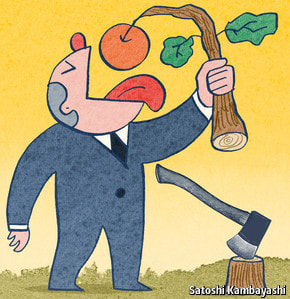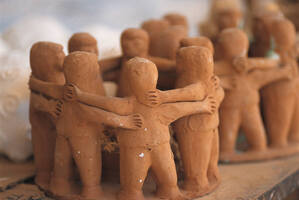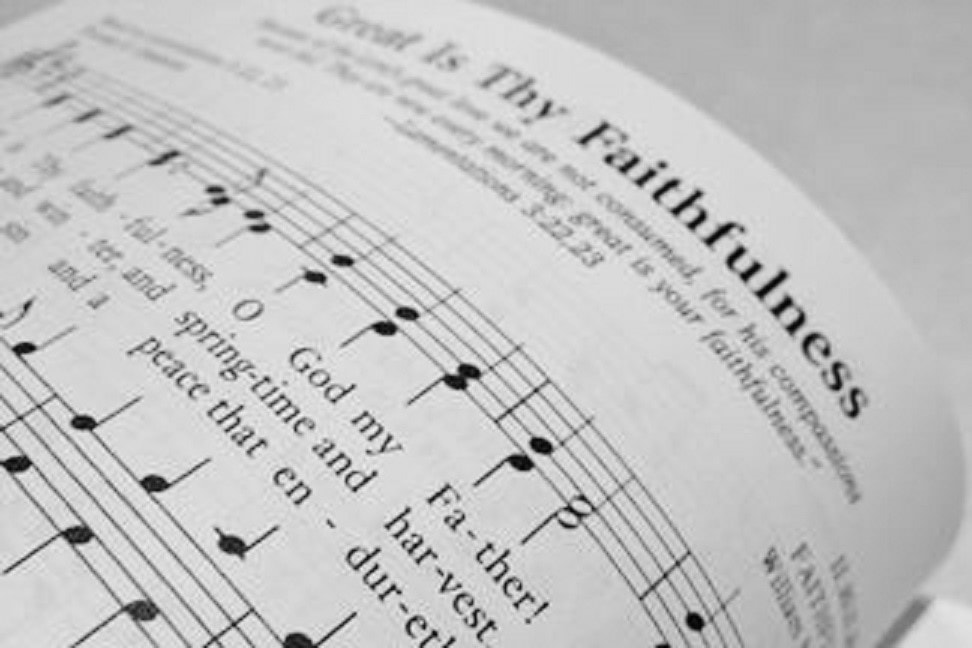 Daniel Thomas, CGS Musician There has been a lot of conversation and consternation among artists and arts producers recently about the impact of Assembly Bill 5. This is the bill that was targeted at companies such as Uber and Lyft to get them to treat their drivers as employees rather than independent contractors. However, the bill has had some unintended consequences, as arts organizations have regularly treated their artists as independent contractors as well (with the rationale that plays or concerts or showings are seasonal and temporary in nature and involve different individuals each time, each with a high degree of creative control over their output, the artists do not fit the traditional definition of an employee). By tightening up the definitions of who qualifies as an independent contractor, many companies are facing a 15%-20% increase in their personnel costs to now cover payroll taxes, workers’ compensation insurance, and other overhead costs. And for many non-profit arts groups whose finances are touch-and-go to begin with, this could be the straw that breaks the camel’s back. Already two Bay Area theatre companies have announced their closure, with AB5 as a stated reason for their shuttering. My theater company faces not-insignificant increase in costs, but we are fortunate that we will be able to scramble and cover these costs for this year, and budget appropriately for following seasons (assuming the bill remains in place, although there are movements about to have it modified or repealed). There has been similar situations in other industries as well - the consequences of this bill have reached far beyond the intentions of the politicians and policymakers. The “law of unintended consequences” can be found throughout the Bible, starting with the decisions of Adam and Eve. We’re taught that everything we say or do has a ripple effect, often far beyond our own vision or perceptions. Some of these things will come back to directly affect us or our loved ones, and some will affect people we may never meet. And each time, we make new decisions or actions based on what has happened, and these will make new ripples. As parents, as teachers, as mentors, and as friends, we try to help each other look at the potential unintended consequences of our decisions, and to recognize that, no matter how fiercely independent we may want to be, that we are all connected through our thoughts, our words, and our deeds. I wonder, though, if we spend enough time on the other side of this: that each action that someone else takes is also influenced by the decisions and actions of people before them. We look at the disempowered and disenfranchised and talk in a lot of “pop psychology” terms – bad or absent parenting, victims of an unfair system, products of their environment – but how often do we look at each individual that we encounter, and how often do we learn their story? When the empowered and privileged, or those whose belief systems differ from ours, do something that we perceive as greedy, or narcissistic, or uncompassionate, what do we do to learn how they came to those decisions, especially when those people fervently believe that they’re doing the “right” thing? It often feels like our society is too vast, and moving too fast, to do anything but paint in broad strokes. The “other side” is depicted as an unknowing, unfamiliar mass of humanity rather than the thousands or millions of individuals, each of whom walked their own path. We try to solve systemic problems with sweeping legislation, rather than drilling down to each industry, or company, or neighborhood, or person. We operate in a binary – “us vs. them” – because it’s just easier. We forget, or ignore, that these are decisions as well, each with their own set of unintended consequences. Right now, it seems the consequences are driving people apart, reinforcing the binary and reducing the opportunity for conversation, collaboration, or compromise. Can we shut out the cacophony of the masses and reach out to the individuals? How can our decision to reach out to even one person with understanding, with compassion, with forgiveness, and with love have consequences for the rest of the world?
0 Comments
 by Sarah Janigian Our congregation is participating in Silicon Valley Safe Parking (SVSP), providing people who are living in their cars a safe place to sleep at night. More than one year ago the church council approved CGS’s involvement. Pastor Manda and a group of members have been attending meetings and working with faith communities in the West Valley/Saratoga area who have successfully been sponsoring safe and legal parking areas for homeless guests to sleep in their cars overnight. (Check out the Christian Century – January 15, 2020 issue. The Rotating Safe Car Park program in West Valley /Saratoga area was a feature article.) Silicon Valley Safe Parking is a partnership of nine faith communities and Bellarmine College Prep, with locations in the central San Jose area. All have agreed to host for one month, up to two times per year. As a host site, we provide a safe parking space, bathrooms and trash/recycling for the guests. Host sites are then able to choose additional hospitality: phone charging stations, hospitality room, snacks, meals, etc. Silicon Valley Safe Parking will work with Amigos de Guadalupe – Center for Justice and Empowerment to screen the applicants for the program and provide us with our guests. SVSP has also determined a set of criteria that our guests must adhere to. All guests must have a valid driver’s license and a working vehicle that is registered and insured. SVCP has other criteria for hosting guests, including no drugs or alcohol, no smoking in cars, and no open flames or cooking in the parking lot. We will also be registered with the City of San Jose, and Police and Fire Departments will be notified. All those agencies have been very supportive of the Safe Car Park program. It will take our village to make this work. CGS’s month for hosting is October, 2020. Volunteers will be needed throughout the entire month. Daily shifts, 7:00 am – 8:00 am in the morning and 8:00 pm – 9:00 pm in the evening, will need to be staffed. As part of the program, we will host a weekly meal and provide snacks as needed. An informational meeting will be held on Sunday, February 23rd, after church, in the Fireside Room. A light lunch will be provided. For more information and to volunteer, contact Sarah Janigian, Chelsea Byom, Rachel Visscher, or Kevin Visscher. You can find their contact information in Breeze or by calling the church office.
Rey Lambatin, Choir Director
This is one of those really popular hymns that speak to me. It tells of one of God’s wonderful traits that bring hope and assurance to those who need it. So, understandably, it’s a favorite and widely sung in Christian churches around the world. Oddly though, I don’t remember singing this when I was going to the Catholic masses. I only started singing and playing this when I got involved in the evangelical church that I used to go to in the Philippines. I could still clearly hear in my head how the congregation would sing the chorus with much fervor. And as a choir director, I’ve encountered different choral settings of this hymn - from triumphant to meditative. However, I think because of its melody’s popularity, this becomes one the songs that the message of the words gets lost when we hear or sing it. With the following bit of history of this hymn, I hope that every time we hear the choir sings or we sing this as a congregation, we’ll go back to having a deeper appreciation of this music. Thomas O. Chisholm, born in Kentucky in 1866, wrote the lyrics of this hymn in 1923. He wrote over 1200 hymns, such as "Living For Jesus," and "O, to be Like Thee." But the hymn we remember the most is "Great Is Thy Faithfulness." Chisholm did not write this hymn because something great and miraculous had taken place in his life. No, he wrote this because over his entire life he had learned to see the greatness of God. At the age of 75, he wrote: "My income has not been large at any time due to impaired health in the earlier years which has followed me on until now. Although I must not fail to record here the unfailing faithfulness of a covenant-keeping God and that He has given me many wonderful displays of His providing care, for which I am filled with astonishing gratefulness." Chisholm sent the lyrics to William Runyan in Kansas, who was affiliated with both the Moody Bible Institute and Hope Publishing Company. Runyan set the poem to music, and it was published that same year by Hope Publishing Company and became popular among church congregations. Chisholm's lyrics reference the Bible verses of Lamentations 3:22-23.

The quote above is from one of my favorite books in the world. It explains why it is so important to me that we have church. The way I am – who I am is because of all the time I have spent gathering with church people. It wasn’t always intentional but it wasn’t ever by accident, either. The reason I believe that there is hope beyond depression is because of the language of resurrection that I heard in worship liturgy. The compassion I have learned to practice was only possible after years of seeing it modeled in long church meetings. My care for the environment is a product of potlucks without paper products and service-trips for vacations. Because I have gathered together with other followers of Jesus all my life I have been formed in the way of the cross. In her book, Parker tells us that a number of studies support the notion that much of the time we spend in gatherings with other people disappoint us. Work, friends, conferences, family…all of it. As disappointed as we are, Parker contends that we tend to keep gathering in the same tired ways. We’re not mindful that what we are doing when we gather is shaping our own thinking and teaching others what kind of community this is. I think about this all the time when I am with you. Worship on Sunday mornings – why are we doing it this way? Are you getting the messages through the order of the liturgy? Bible Studies – how can I get y’all to share the amazing stuff with one another that you share with me? Congregational meetings – how can we be in mission together without everyone hating it? This past Sunday was the culmination of a long process of trying to address congregational meetings. These meeting are the second heart of this body of Christ. After worship, it is the only time that we’ve committed to being all together. It is the place where all of our biggest decisions are made: how we elect our leaders, how we change the parameters of our community, how we spend our money and resources, all things that we care about. I’m proud that over the past year, with the leadership of our council, we’ve switched off the auto-pilot and considered the way we do congregational meetings. With the constitutional changes that we finalized last Sunday, we will now have two regular meetings of the congregation each year. One meeting will take place in the month before Pentecost Sunday (usually May). At this meeting we will elect our council members and our treasurer. In the month that follows the new leaders will elect from among themselves the other officers of our congregation. They will then have the rest of the summer months to vision for the coming year and commission the Finance Ministry to prepare a budget for the coming fiscal year. A draft budget could be available in September for congregational discussion and input. On a Sunday in November we will hold our annual congregational meeting. At this meeting we will vote on a budget for the coming fiscal year. We will also elect a Nominating Committee and Synod Assembly Voting Members. The council that was installed the previous spring will continue their work through the fiscal year turnover. I’m excited because this will mean that we no longer have council members who leave before their hard work is finished. It will mean that we’re not trying to amend a budget over vacation or make financial moves before they’ve been approved by the congregation. It means our new council will have time to listen for God before proposing anything to vote on. Generally, it means that we can gather better. I’m excited for the future when gathering for our congregational meeting will look more like what the prophets describe: God gathering her people from all directions of the compass, from the forgotten places, and the distant places, and the places separated by walls. There, with everyone gathered in the same tent the Holy Spirit blows and everyone is set on fire for the mission that they share – to proclaim God’s love in the world. -Pastor Manda |
Christ the Good ShepherdVarious editorials, articles, and other items of interest. Archives
June 2024
Categories |

 RSS Feed
RSS Feed

